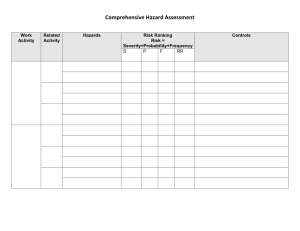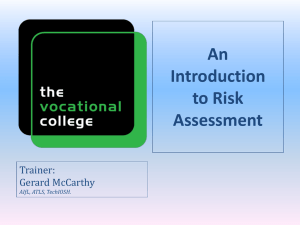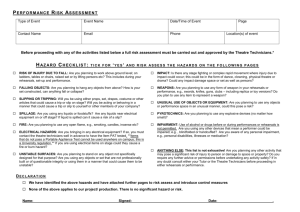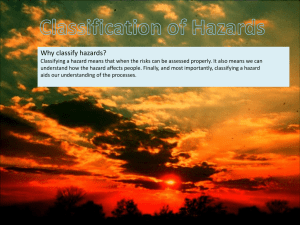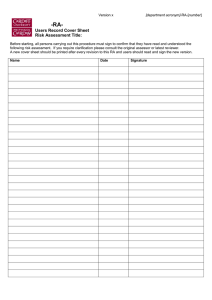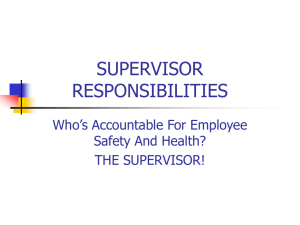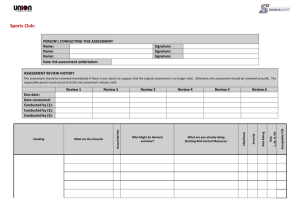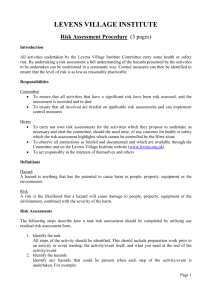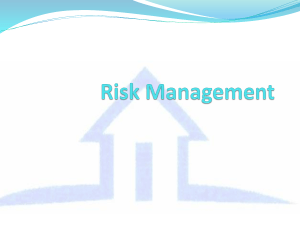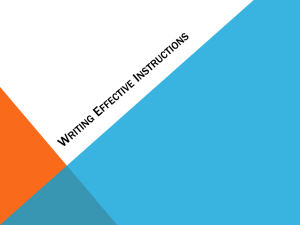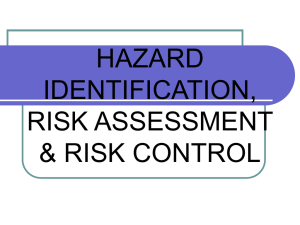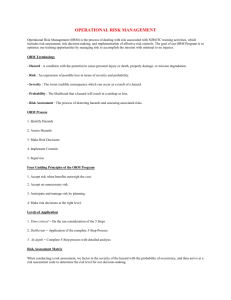Risk Assessment
advertisement
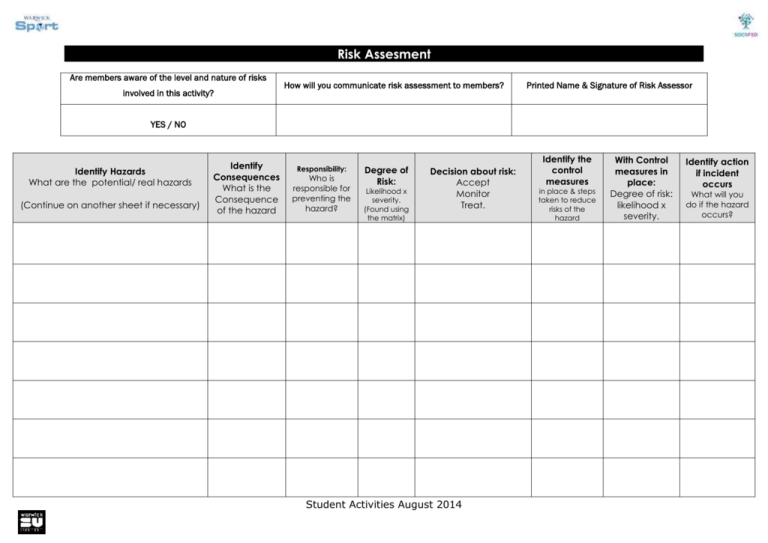
Risk Assesment Are members aware of the level and nature of risks involved in this activity? How will you communicate risk assessment to members? Printed Name & Signature of Risk Assessor YES / NO Identify Hazards What are the potential/ real hazards (Continue on another sheet if necessary) Identify Consequences What is the Consequence of the hazard Responsibility: Who is responsible for preventing the hazard? Degree of Risk: Likelihood x severity. (Found using the matrix) Decision about risk: Accept Monitor Treat. Student Activities August 2014 Identify the control measures in place & steps taken to reduce risks of the hazard With Control measures in place: Degree of risk: likelihood x severity. Identify action if incident occurs What will you do if the hazard occurs? Risk Assessment matrix Likelihood Severity How 1 2 3 4 5 1 1 2 3 4 5 2 2 4 6 8 10 3 3 6 9 12 15 4 5 4 5 8 10 12 15 16 20 20 25 1 - Low Risk 5 - High Risk Level of risk = Severity x Likelihood (risk) To use this matrix: Your score is determined from the Risk/Hazard Matrix. This is an aid to identify the score and priority of risks/hazards by determining the impact the risks/hazards have on your event/members. For example: i. Likelihood: Building a house on on a known floodplain then the likelihood of your premises flooding is 5- very likely. ii. Severity: The impact of your premises flooding would be 3- significant to catastrophic. When completed, the matrix will indicate what the highest risks to your group are. You can now make an informed decision as to whether to accept, monitor or treat the risks: A: Accept – You decide that you are happy to ‘live with’ the risk/hazard. B: Monitor – You are not happy but ‘plan for and live with’ the risk/hazard, as the cost of implementing any risk/hazard reduction strategies may outweigh the benefits. However, continued frequent assessments are carried out to monitor that the risk/hazard does not increase. C: Treat -You want to treat the risk/hazard, i.e. implement steps to reduce the impact or likelihood because the risk/hazard is too great for your business. It is not possible to militate against all risks/hazards; this is why a plan is required. Student Activities August 2014
